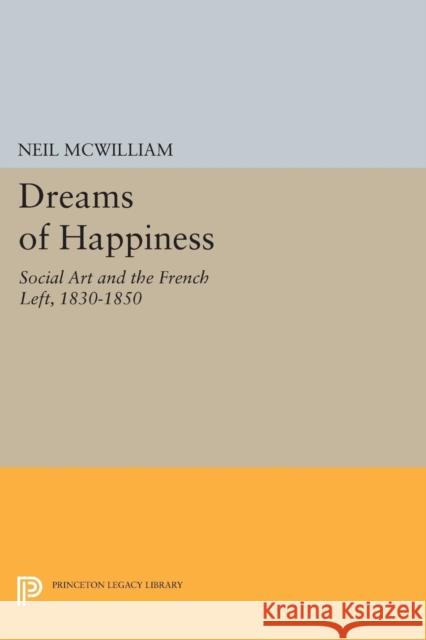Dreams of Happiness: Social Art and the French Left, 1830-1850 » książka
Dreams of Happiness: Social Art and the French Left, 1830-1850
ISBN-13: 9780691601502 / Angielski / Miękka / 2017 / 400 str.
Dreams of Happiness: Social Art and the French Left, 1830-1850
ISBN-13: 9780691601502 / Angielski / Miękka / 2017 / 400 str.
(netto: 268,34 VAT: 5%)
Najniższa cena z 30 dni: 275,73
ok. 30 dni roboczych
Dostawa w 2026 r.
Darmowa dostawa!
Responding to the decline of the monarchy and the church in post-revolutionary France, theorists representing a wide spectrum of leftist ideologies proposed comprehensive blueprints for society that assigned a crucial role to aesthetics. In this full-length investigation of social romanticism, Neil McWilliam explores the profound impact of radical philosophies on contemporary aesthetics and art criticism, and traces efforts to conscript the arts for doctrinal ends. He highlights the complexity and diversity of systems such as Saint-Simonianism, Fourierism, Republicanism, and Christian Socialism--movements that set out to exploit the ameliorative effect of aesthetic form on human consciousness--and challenges the previous linking of social art to narrow didacticism. This book seeks an understanding both of the conventions of artistic judgment and reception and of the aims and significance of radical political ideologies. Drawing on a broad spectrum of previously neglected journalistic criticism, visual material, and archival sources, together with key political texts by figures such as Saint-Simon, Philippe Buchez, and Pierre Leroux, this work reveals an important facet of radical history and modifies received understandings of French art in the wake of Romanticism. In the process it probes the role of culture within oppositional political practice, arguing that the ultimate failure to realize a social art exposes the limits of the radicals' break with dominant discourse and their hesitancy in forging links with a culturally disenfranchised working class.Originally published in 1993.The Princeton Legacy Library uses the latest print-on-demand technology to again make available previously out-of-print books from the distinguished backlist of Princeton University Press. These editions preserve the original texts of these important books while presenting them in durable paperback and hardcover editions. The goal of the Princeton Legacy Library is to vastly increase access to the rich scholarly heritage found in the thousands of books published by Princeton University Press since its founding in 1905.











